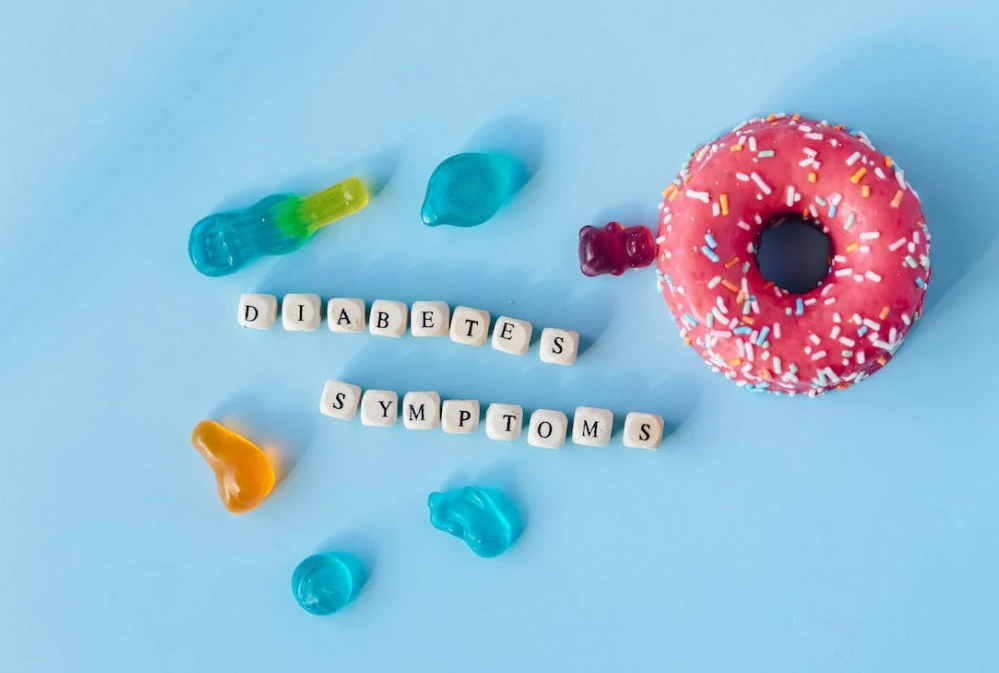Self Love Deficit Disorder
Learn how to overcome self love deficit disorder.

Selfpause Affirmation App
Download the app to get 1,000’s of affirmation meditations and everything you need to write, record and listen to your own.
Having Self Love Deficit Disorder can be a very difficult and frustrating experience. Fortunately there are ways to deal with this problem.
Understanding

Having a healthy and balanced sense of self love is a crucial component of overcoming self love deficit disorder. People with SLDD have become so absorbed with taking care of others that they fail to care for themselves. Moreover, they tend to take on other people’s feelings, judgments, and expectations. This causes them to develop unhealthy coping mechanisms and relationships.
The lack of self love leads to a deep-seated insecurities, and it is the root cause of a number of psychological problems. In addition, narcissism is a major factor in the development of self love deficit disorder. Narcissism is a disorder that results in a person’s inability to control their emotions and actions. Narcissists project their negative feelings onto others, and they often consume and devour resources. It is important to understand the difference between self love and narcissism.
A narcissistic parent can lead to a child developing a distorted sense of self. This is done by giving conditional love to the child. Often, a narcissistic parent will use conditional love and attention to taint the child’s beliefs about himself or herself. This type of parenting is also known to create trauma in the child. When the child is not able to believe in himself or herself, the child will begin to believe only when he or she is able to please others.
In order to overcome self love deficit disorder, one must develop healthy coping mechanisms and relationships. Moreover, one must work on past negative experiences and unaddressed trauma. This can be done by developing hobbies and implementing self-care techniques. It is also important to work on one’s strengths and weaknesses. By recognizing one’s strengths and weaknesses, one can realize that he or she is not perfect.
People with self love deficit disorder are prone to unhealthy relationships, resulting in self-abuse, self-harm, and unhealthy coping mechanisms. People who stay in such relationships are often afraid of being left alone, and fear intense shame. By understanding these fears, one can learn to set healthy boundaries and be more self-aware. In addition, one can find clinical practices and non-medical interventions to reinforce self-care.
It is important to understand the role of childhood trauma in the development of self love deficit disorder. The earliest childhood trauma that leads to SLDD occurs when a child grows up in a dysfunctional family. The child is abused by the narcissistic parent, and the child develops a distorted sense of self.
In order to overcome SLDD, one must recognize that one’s core shame is the root cause of the disorder. Often, the person with SLDD is in denial of the dysfunctionality of their relationship. They believe that their narcissistic partner will understand their mistakes.
The remedy for self love deficit disorder is a healthy sense of self-love, and this can be achieved through a combination of mindfulness techniques, learning new skills, and developing hobbies. Using these techniques will help people with self love deficit disorder recognize their strengths and weaknesses, and learn to care for themselves. This will allow them to overcome self love deficit disorder.
Symptoms

Symptoms of self love deficit disorder are associated with a distorted sense of self, poor mental health, and a relationship with a narcissist. People with a distorted sense of self are often blamed for their own insecurities. They may feel that they are too weak to set boundaries or control their own behavior. This may have been learned in childhood when they were not connected to a loving parent. This leads to a dysfunctional relationship that may include abuse, neglect, and unhappiness.
The distorted sense of self is often the most painful of the self love deficit disorder symptoms. People with a distorted sense of self are often unable to establish healthy boundaries, and become reliant on their loved ones for their emotional needs. They may feel that their only option is to seek love from a narcissist. Eventually, they become obsessed with the narcissist, and develop a close relationship with them.
Self love deficit disorder symptoms can be addressed with the use of therapy and non-medical interventions. In order to treat this condition, people must learn to set boundaries, prioritize their needs, and recognize their strengths and weaknesses. It is crucial to acknowledge and process any past trauma that may have contributed to the development of the condition.
The most common symptom of self love deficit disorder is rejection anxiety. This fear of rejection limits people’s options in both professional and personal settings. Those with a distorted sense of self are also prone to developing codependency, which is a relationship where the partner feels a sense of obligation to the codependent.
Another symptom of self love deficit disorder is guilt. Often, people with a distorted sense of self are unaware that they have a problem and are in denial about their dysfunctional relationships. They think they are helping others and think that they are not causing harm. However, they are in denial about the fact that they are enabling narcissistic behaviors. Often, people with a narcissistic partner punish codependents.
Lastly, people with a distorted sense of Self love deficit disorder symptoms are often ashamed of their condition. They may feel guilty about their self worth, and think that they are causing others pain. Consequently, they continue to repeat the same relationship pattern with their parents and with narcissists.
Symptoms of self love deficit disorder can be addressed with the use of therapy and self-care. Developing healthy coping mechanisms and setting boundaries can lead to the development of self-love. Using mindfulness techniques can also help people treat the condition.
Symptoms of self love deficit disorder include a distorted sense of self, a lack of empathy, and self-neglect. Some people with the disorder are also suicidal. These symptoms are a result of an emotional deficiency, and are often caused by childhood trauma. Self love deficit disorder can be treated by learning to prioritize one’s own needs, setting healthy boundaries, and developing hobbies.
Treatment

SLDD is a condition that causes people to develop unhealthy and unhealthy coping mechanisms. People with self love deficit disorder are not able to establish healthy boundaries and they develop unhealthy relationships. They may try to control their partners and neglect their own needs. Ultimately, they become addicted to these abusive relationships.
People with self love deficit disorder often have a deep fear of rejection. They feel a need to be the center of attention and they believe that they can control their abusive partners by taking care of them. They may also be in denial about their dysfunctional relationships. This fear of rejection can limit their professional situations. Fortunately, non-medical interventions are available to reinforce self care.
Self love deficit disorder is a condition that is a result of childhood trauma. It begins when a child grows up with a parent who is a narcissist. The narcissist uses conditional love to create trauma for the child. The child creates a distorted sense of self, believing that he or she is unworthy and that they must please the narcissist in order to receive love. Only when the child is invisible do they begin to believe in themselves.
To resolve SLDD, people must work on their childhood trauma and coping mechanisms. They must begin by building a solid foundation for self care and self respect. In addition, they must work on their relationship skills. They should learn to say no, and they should learn to make decisions for themselves.
SLDD can be effectively treated by using mindfulness, drawing boundaries, and learning a new hobby. These strategies are based on the concept that a person with SLDD is in need of love. It is also possible to resolve SLDD through the removal of maladaptive coping techniques. People with SLDD can work towards healing their condition through the resolution of their attachment trauma.
Ross Rosenberg is a professional trainer and a psychotherapist. He has written many books and has been featured on national television. He has taught in 30 states and translated his books into 10 languages. His Human Magnet Syndrome has been sold in over 120K copies worldwide. He has also been featured as a keynote speaker. His seminar, The Codependency Cure, will provide information and hope for people with SLDD. The seminar will also delves deeper into codependency and introduce the Ten Stage Self Love Recovery Treatment Model.
SLDD is not a medically recognized disorder, but it can be effectively treated with self love deficit disorder treatment. It is best to seek professional help when it becomes severe. The symptoms of SLDD include: self abuse, codependency, and suicidal tendencies. It is also possible to resolve the disorder through the resolution of addiction.
Ross Rosenberg has a wealth of experience in the field of trauma and sex addiction. He is an expert witness and a psychotherapist who has presented in 30 states and translated his books into 10 different languages. He also is a trainer for the Self Love Recovery Institute.
Our Top FAQ's
Self Love Deficit Disorder (also known as self-hatred or self-loathing) is a term that refers to a lack of self-acceptance and self-worth. It can manifest in various ways, including negative self-talk, low self-esteem, self-blame, and difficulty setting and achieving personal goals. People with Self Love Deficit Disorder may also struggle with anxiety, depression, and other mental health issues.
The potential causes of Self Love Deficit Disorder can be complex and varied. They may include past trauma or abuse, negative messages or experiences in childhood or adolescence, low self-esteem, and negative thought patterns or cognitive biases. It can also be a symptom of underlying mental health conditions such as depression or anxiety.
Improving self-esteem and self-worth can be a challenging process for individuals with Self Love Deficit Disorder, but there are several strategies that can be helpful. These may include therapy or counseling, positive affirmations and self-talk, setting and working towards achievable goals, and seeking support from friends, loved ones, or a support group. It can also be helpful to engage in activities that bring joy and a sense of accomplishment, and to practice self-care and self-compassion.
There are several therapeutic approaches that may be effective in addressing Self Love Deficit Disorder. These may include cognitive-behavioral therapy (CBT), which can help individuals identify and change negative thought patterns; dialectical behavior therapy (DBT), which emphasizes acceptance and mindfulness; and psychoanalytic therapies, which can help individuals explore and understand the root causes of their self-hatred. Other therapies, such as mindfulness-based therapies and acceptance and commitment therapy (ACT), may also be helpful. It is important to work with a trained mental health professional to determine the best approach for addressing Self Love Deficit Disorder.
Friends and loved ones can play a valuable role in supporting individuals who may be struggling with Self Love Deficit Disorder. Some ways to do this include offering emotional support, listening actively and non-judgmentally, and encouraging the person to seek help from a mental health professional. It can also be helpful to be patient and understanding, and to avoid giving unsolicited advice or trying to fix the person’s problems. Instead, it can be more helpful to offer love, compassion, and acceptance.
